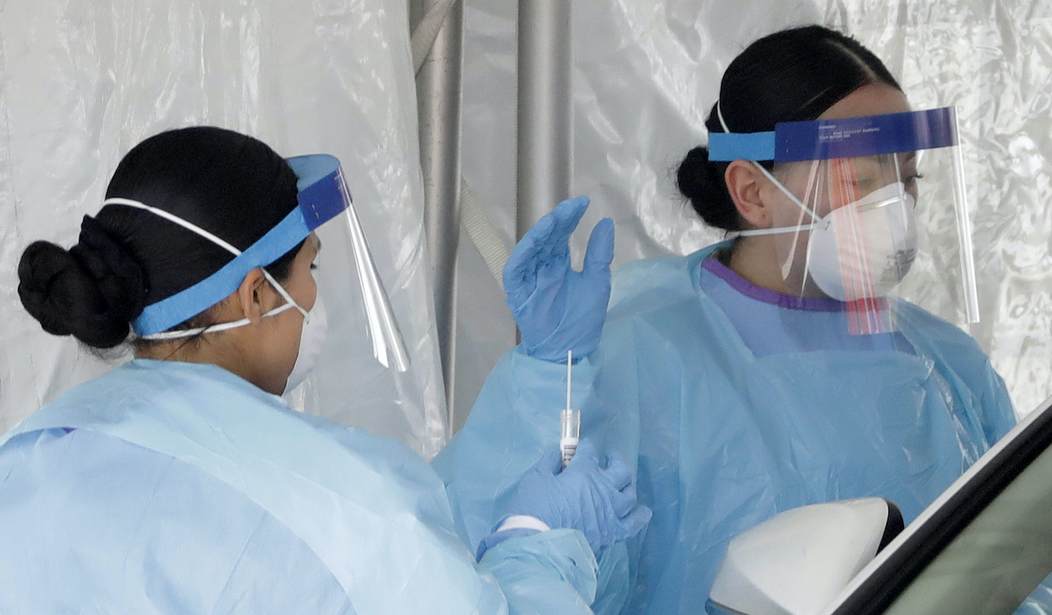Wuhan coronavirus patients may recover from their symptoms and clear the virus, but their health may still be in jeopardy.
"Doctors around the world are noting a raft of clotting-related disorders -- from benign skin lesions on the feet sometimes called “Covid toe” to life-threatening strokes and blood-vessel blockages," Bloomberg reports. "Ominously, if dangerous clots go untreated, they may manifest days to months after respiratory symptoms have resolved."
These clots can be fatal or cause sudden strokes. Younger patients are also affected.
“There’s something about this virus that’s exaggerated that to the nth degree,” Mitchell Levy, chief of pulmonary critical care and sleep medicine at the Warren Albert School of Medicine, told Bloomberg. “We’re seeing clotting in a way in this illness that we have not seen in the past.”
According to Margaret Pisani, an associate professor of medicine at the Yale University School of Medicine in New Haven, Connecticut, the blood clotting issue is likely the reason behind patients who appear to be doing well then quickly "fall off the ledge" with blood-oxygen deficiency.
Researchers in China noticed the clotting problem in February and since then, studies out of the Netherlands and France also noted the severity of the problem, with 30 percent of seriously ill coronavirus patients having suffered from a pulmonary embolism.
If untreated, large arterial lung clots can put overwhelming strain on the heart, causing cardiac arrest. Even tiny clots in the capillaries of lung tissue may interrupt blood flow, undermining attempts to help oxygenate patients with ventilators, said Edwin van Beek, chair of clinical radiology at the University of Edinburgh’s Queen’s Medical Research Institute.
In the early 1990s, Van Beek helped develop the D-dimer blood test that’s used around the world to monitor clot formation in patients, including those with Covid-19, and to dose them with heparin and other anticoagulant medications.
Untreated pulmonary embolism is lethal in one in three cases, and will recur in another third, he said. In 3% to 7% of patients, it will cause pulmonary hypertension, another dangerous complication that can cause fatigue and shortness of breath.
Scarred lungs and clotting-related problems may be a lingering legacy of the pandemic, Van Beek said. Covid-19 survivors who have subsequent difficulty breathing, especially on exertion, might mistakenly believe it’s a recurrence of coronavirus infection, when it may actually be a “reactivation of the whole clotting problem.” (Bloomberg)
Recommended
Dr. Anthony Fauci, director of the National Institutes of Allergy and Infectious Diseases and White House coronavirus task force member, told CNN's Jake Tapper recently that autopsies of the lungs from COVID-19 victims are revealing "things we didn't expect."
“We’re seeing things that weren’t quite noticed in the big chaos of the explosion of cases, first in China, then Europe, and now in the United States,” he said. “Now we’re starting to see things that on the one hand are puzzling but on the other hand are enlightening.”
He continued: “It’s opening up the door, I believe, to some interventions that might be helpful.”
Editor's Note: Want to support Townhall so we can keep telling the truth about China and the virus they unleashed on the world? Join Townhall VIP and use the promo code WUHAN to get 25% off VIP membership!

























Join the conversation as a VIP Member